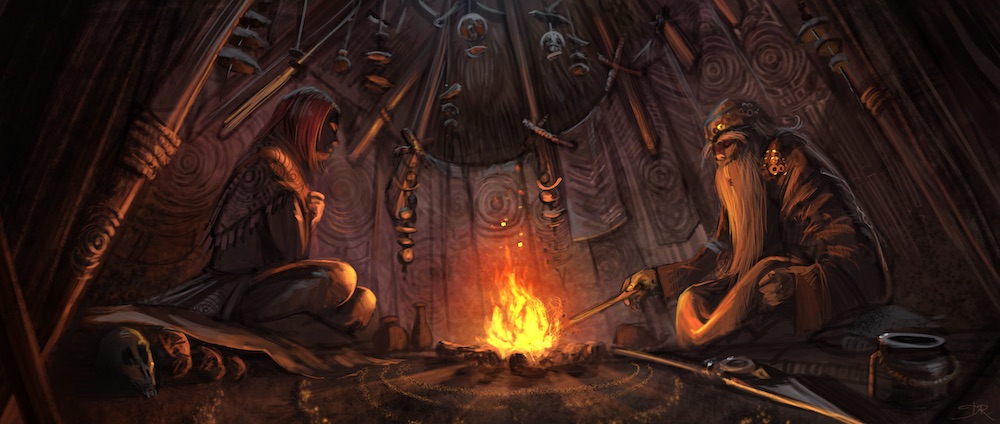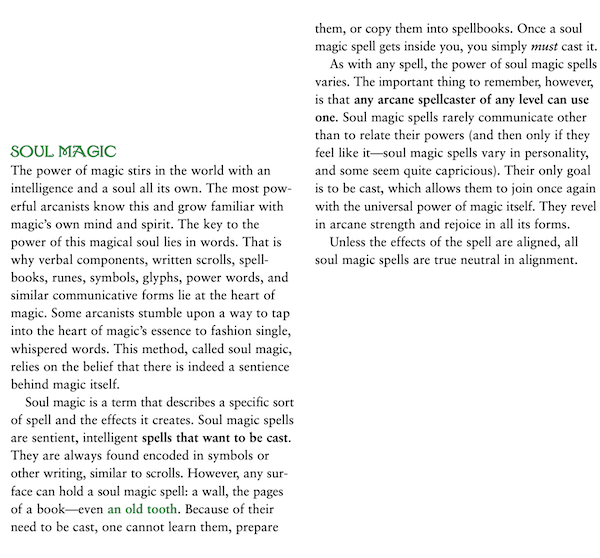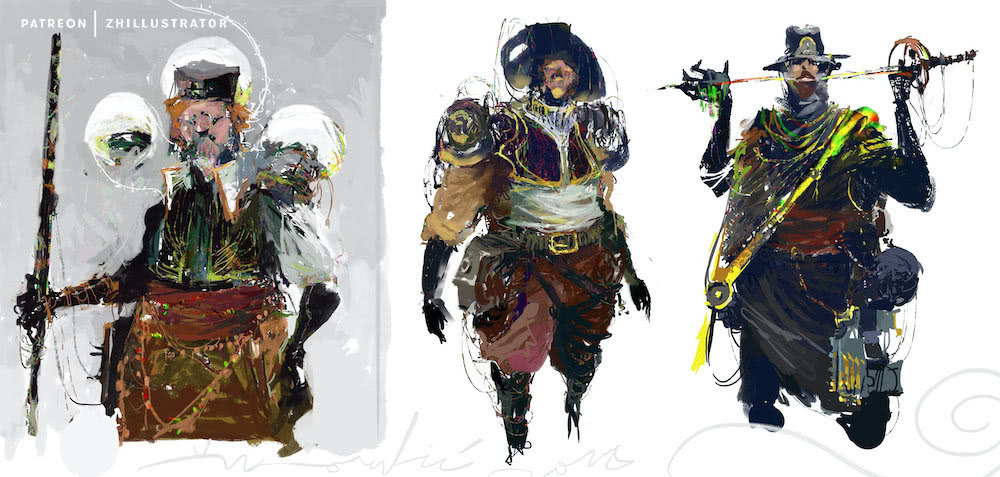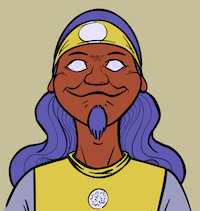Cypher is a relatively new system, and many come to it with their own prior “system baggage.” Take the Cypher pill with me and experience the paradigm shift, while we explore the world of Ptolus.
The Blue Pill Story
My friend runs all his games in Golarion. You know, the Pathfinder kitchen sink setting. He got the Cypher virus from me and fell in love with the system, but could not divorce himself from the old ways. He started on this project of marrying the Cypher System with Pathfinder - Cypherfinder, he called it. I helped him with this, as any friend would.
First, we started with the classes. My friend wanted to retain the class structure of Pathfinder, as Cypher’s abilities were “bland” to him. That was not impossible, but I will tell you, it was A LOT of work. One of the main issues was that in Cypher, some of the standard roleplaying “classes” live as Foci. We needed to move these to Types. You can read my attempt at the Wizard Class.
Then, we tackled the spells. Again in Cypher, most of what you would call “spells” are actually cyphers, and this created a world of problems because he didn’t want his spells as cyphers.
Lastly, he merged the leveling between the two systems and came up with a scheme that only made sense to him, and no one else.
The end result was an amalgamation of the two rulesets, foreign to our table of people that played and loved both systems individually. The players were not interested.
The Cypher Pill
So what should he have done? How can one play in Golarion using solely the Cypher System? Or, even more exciting, how will we play Ptolus using the Cypher System without any of the DnD baggage? Before we get there, let us first identify the major strengths of the Cypher System.

Cypher System Design Philosophy
Cypher is designed for emulating various genres and narrative tropes. Emulation here means it will provide just enough structure and abstraction needed to reach an appropriate level of verisimilitude. In the above sense, it is not a simulation engine and considers nitty-gritty details as false precision. Think of it as the difference between playing a wargame with elaborate terrain, measuring sticks, and super detailed pieces versus playing a game of chess. Both chess and wargames tackle the same subject but on widely different levels of abstraction. Measuring sticks are too precise for chess games, and chess moves are too abstract for wargames.
So why do we say that some details are false precision, and why do we want just enough of them to get proper verisimilitude? What is the goal behind such a game design?
Monte says that the Cypher System is a game about the story, not the rules. It comes from the insight that the more rules one needs to process, the less storytime they will get. I like to think of it as a sort of cognitive budget. Your typical 4-hour session might recreate that one historical battle in excruciating detail, or you might create a broader shared narrative where you get to have dozens of battles, visit several planets, marry the dragon and kill the prince. All that in the same 4-hour sitting.
That latter approach is possible because our human brains evolved to fill in the gaps. And that is why we can only care about verisimilitude, and allow the player’s minds to fill in the details.
In short, the Cypher System’s game engine elegantly keeps the focus on story and action, without sacrificing structure or mechanical detail. Monte Cook
Importance of Cyphers in the Cypher System
I’ve seen people new to the system having trouble implementing cyphers in their settings and then abandoning the concept altogether. While you can do that due to the modularity of the engine, here’s why they are essential. Mechanically speaking, cyphers are your character abilities/feats. Separating these abilities from the characters gives quite a few advantages:
- Cyphers will vary from game to game providing replayability.
- Being part of the setting, they carry lore and help with worldbuilding, similar to how MtG cards have bits of lore on them.
- From one genre to another, you can reskin and adapt existing cyphers instead of figuring out powers from scratch.
- They break the conservative/cautious style of play and create a gameplay loop that pushes players towards discovery.
- Cyphers allow for streamlined character “builds” by removing the complexity and rules until needed.
- They emulate the “It Only Works Once” trope used in so many narratives. A thing found in the first scene saves the heroes in the end scene.
- They cause games to go off in unexpected and fun directions.
- The same way GM intrusions allow a GM to nudge the narrative in a particular direction, cyphers will enable them to touch character builds and introduce narrative tensions. Give characters a teleport cypher and a difficult decision to either save themselves or unfortunate victims.
- No need to worry about the balance between character builds.
- Provide OP moments for players from the get-go - no need to wait for twenty levels to feel powerful. Allow a player to nuke the town in session one, and he will come to your next game for more of that ;)
- Flexibility to make them subtle. Last resolve, strength reserve, inspiration, insight - allow players to engage and roleplay those crippling drama moments.
- As a GM, you get to set the power level and randomness factor of cyphers. Custom tailor them for the game experience you want.
Ptolus Thought Excercise
The fantasy genre is where people coming to Cypher have most problems. Figuring out the nature of cyphers is a common one, or you probably had someone complaining that character types are a bit bland. Lamentations on Vancian spell casting are also a thing. So let’s unpack these using the Ptolus setting and try to figure out how it will look once we unmarry it from DnD.
Cyphers in Ptolus
Answering this question is super easy, as Ptolus contains the seeds of what will eventually become cyphers as we know them. In Ptolus, cyphers are the manifestation of Soul Magic.

Soul magic spells are sentient, intelligent spells that want to be cast. They are always found encoded in symbols or other writing, similar to scrolls.
That sorts cyphers, let’s move on to other forms of magic.
Ptolus Types
If we take a look at the new and free Ptolus Player’s Guide pages 24-26, we can see that 5E has 12 classes, and the Cypher version comes with only 4 Types. Why is that?
The meat of 5E characters comes from their Class, but in Cypher, this is broken down to Type, Flavor, and Foci. So although there are only four main Types, there are 3 Flavors for each, netting us twelve options to choose from. Further, each will then be free to choose from dozens of Foci and put a unique spin on their character.
So although all our magic-users will be Adepts, using Type Flavors and Foci, we will be able to recreate all known archetypes for our game - Clerics, Druids, Wizards and such.
Now, this is the most straightforward approach. You may still end up with a Wizard, Druid, and Cleric having very similar starting abilities. If you have the time, you can diversify Types further. Following ideas from my Wizards post, we can move some Focus mechanics to Types. Let’s check some examples:
- An Adept Who Masters Spells might become a Wizard Type. They then could choose a Focus becoming a Wizard who Conjures Things (conjuration), or a Wizard who Consorts With the Dead (necromancy), and so on - a focus for each of the wizarding schools.
- An Adept who Channels Divine Blessings might become a Cleric Type. Cleric foci selection would revolve around domains. In Ptolus, you might be a Cleric who worships Asche, God of Cities (Civilization), a Cleric who worships Aldinach, the Goddess of the Moons (Future), and so on.
- An Adept who Speaks for the Land might become a Druid who is a member of a specific Circle.
- A Warrior who Rages might become a Barbarian who Masters Weaponry, or any other combat-related foci. These are just a few examples of how you can tailor your Types and Foci to best suit your Ptolus Game.

Vancian Purists
Cypher comes with an optional rule on Spellcasting (p.259) and a dedicated focus called Masters Spells, but other than that, it does not concern itself with the nitty-gritty of Vancian spellcasting. If you have players who can’t live without their spell slots, you will be in a bit of a predicament. I am not a purist in this regard, but if you ask me a combination of my Wizard hack, a bit of flavor, and some smart roleplaying should do the trick and get you to the levels of verisimilitude you need. This situation might change with new fantasy titles coming from MCG: Godforsaken and Ptolus. I would not hold my breath, though, as spell slots are relatively incompatible with Cypher’s resource pools, which is the main distinction between the two systems.
Vancian Spellcasting Hack
All that being said, what if I tell you that Cypher can model Vancian spellcasting, as it is presented in Vance’s books, better than others? In the books, spells are 4th-dimensional mathematical constructs that a wizard primes in his brain. He can hold but a few. By casting, the wizard is banishing primed spells from his mind. So to emulate this, all we have to do is to apply an initial cost for each spell the wizard is preparing. The more spells they want to cram the more INT cost they need to pay. Bam! already makes more sense than the slots. From here, you can take it further, tweaking the cost and making it more detailed as needed.
Chaositec
Ptolus Chaositec is another easy solve in Cypher. These are mainly artifacts and grafts coupled with mutations. Mutations and grafting are already covered in the Numenera setting, so I will not delve into that.
Parting Thoughts
This wasn’t particularly hard, was it? I imagine if you took the Ptolus setting as it is now, you would be one week of work away from running it for your Cypher group. This sentiment is generally true for any game you want to play in Cypher. Follow the game design, hack it where needed, and have fun. Release yourself of prior systems baggage and look at your games with a new set of montecook eyes. Maximize the fun with a minimal set of rules.
A couple of farewell tips:
- Start with broad strokes, and don’t fret about the details.
- Consult your players and make sure your expectations about the game are aligned.
- Don’t be afraid to say NO to that one guy who is bent on playing a Forsaken Shigmaa or some other exotic character concept. There is no shame in starting your game with just a few basic genre tropes. You can always expand on these later.


Comments